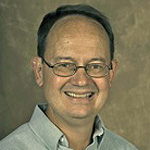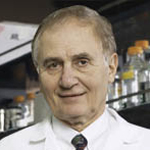David Balota, PhD, a leader in the study of cognitive breakdowns that occur in Alzheimer’s, and Steven L. Teitelbaum, MD, a world-renowned bone biologist, will receive Washington University in St. Louis’ 2014 faculty achievement awards, Chancellor Mark S. Wrighton announced.
Balota, professor of psychology in Arts & Sciences and professor of neurology in the School of Medicine, will receive the Arthur Holly Compton Faculty Achievement Award.
Teitelbaum, the Wilma and Roswell Messing Professor of Pathology and Immunology and a professor of medicine, will receive the Carl and Gerty Cori Faculty Achievement Award.
They will receive their awards and give presentations of their scholarly work during a Dec. 6 program.
“Professors Balota and Teitelbaum represent the very best qualities of Washington University faculty,” Wrighton said. “Both have made significant contributions to the university and within their respective fields. I am pleased that we are recognizing these two very distinguished scholars with the 2014 faculty achievement awards.”
David Balota

Balota, a member of the faculty here since 1985, is a cognitive psychologist known for his work on the critical role of attentional control systems in memory, language, and in age-related changes in cognition in healthy aging and in individuals who have developed (or are likely to develop) dementia of the Alzheimer’s type.
In collaboration with researchers at the Charles F. and Joanne Knight Alzheimer’s Disease Research Center, his work has recently demonstrated sensitivity of attentional control measures to biomarkers that are accumulating in individuals before the onset of dementia.
A native St. Louisan, Balota earned a bachelor’s degree in psychology from the University of Missouri-St. Louis in 1976. He received a master’s degree in experimental psychology in 1978 and a doctoral degree in 1981, both from the University of South Carolina in Columbia, S.C.
He is a fellow of the American Psychological Association, the American Psychological Society, the American Association for the Advancement of Science, and a member of the esteemed Society of Experimental Psychologists. He is a former chair of the Psychonomic Society, the leading society of experimental psychologists, former editor of the society’s flagship journal, Psychonomic Bulletin & Review, and president of the Experimental Psychology Division of the American Psychological Association.
Balota has contributed to important methodological advances in cognitive science. He developed the English Lexicon Project, a widely used megadatabase of more than 40,000 words and nonwords, including millions of behavioral responses. He also has shown that measures of variability in performance can be particularly important in discriminating among cognitive theories above and beyond mean level performance.
At WUSTL, he has been pivotal in leading the Aging and Development program, which is one of the National Institutes of Health (NIH)’s first training grants related to aging and psychology, and until recently he directed the Linguistic Studies program. He has served on many university committees, including as a member of the promotion and tenure committee for Arts & Sciences.
In 2011, he received the David Hadas Teaching Award in Arts & Sciences and twice has received the Graduate Student Mentor Award.
Steven Teitelbaum

Born and raised in New York, Teitelbaum imagined in 1960 that his move to Washington University in St. Louis for medical school would be “like crossing the Appalachians in a covered wagon,” he recalled.
“My father had this image that there would be this cliff with dragons as you crossed the Ohio River,” he said.
Instead, Teitelbaum found opportunities to train with world-class researchers like Louis Avioli, a pioneering scientist regarded by many as the father of modern osteology, the science of bones.
More than 50 years later, Teitelbaum is still a St. Louis resident and has his own record of groundbreaking insight into bone biology. To keep the skeleton strong, the body regularly demolishes and rebuilds its bones.
Teitelbaum has produced an extensive collection of important discoveries about the cells and regulatory factors that control this renewal process.
Teitelbaum also has been a leader in development and adaptation of new techniques for diagnosis and treatment of bone disease. When French physicians developed the first technique for extracting bone samples to diagnose disease, he traveled to France to learn the technique and brought it back to St. Louis.
He also has been a strong advocate for scientific freedom, speaking out often about the potential benefits of stem cells and cloning and opposing legal prohibitions on the use of these and other scientific tools and techniques.
Teitelbaum received his bachelor’s degree from Columbia College in 1960 and his MD from Washington University in 1964.
He has served as president of the American Society for Bone and Mineral Research and the Federation of American Societies for Experimental Biology.
In 2010, the NIH gave Teitelbaum a MERIT (Method to Extend Research in Time) award, which is used to provide long-term grant support to outstanding investigators.
Teitelbaum laughs at his early misconceptions about St. Louis and the medical school, the eventual epicenter of his life’s work.
“My career never would have been what it has had it not been for this institution,” he said. “Washington University gave me a sense of excellence and possibility.”